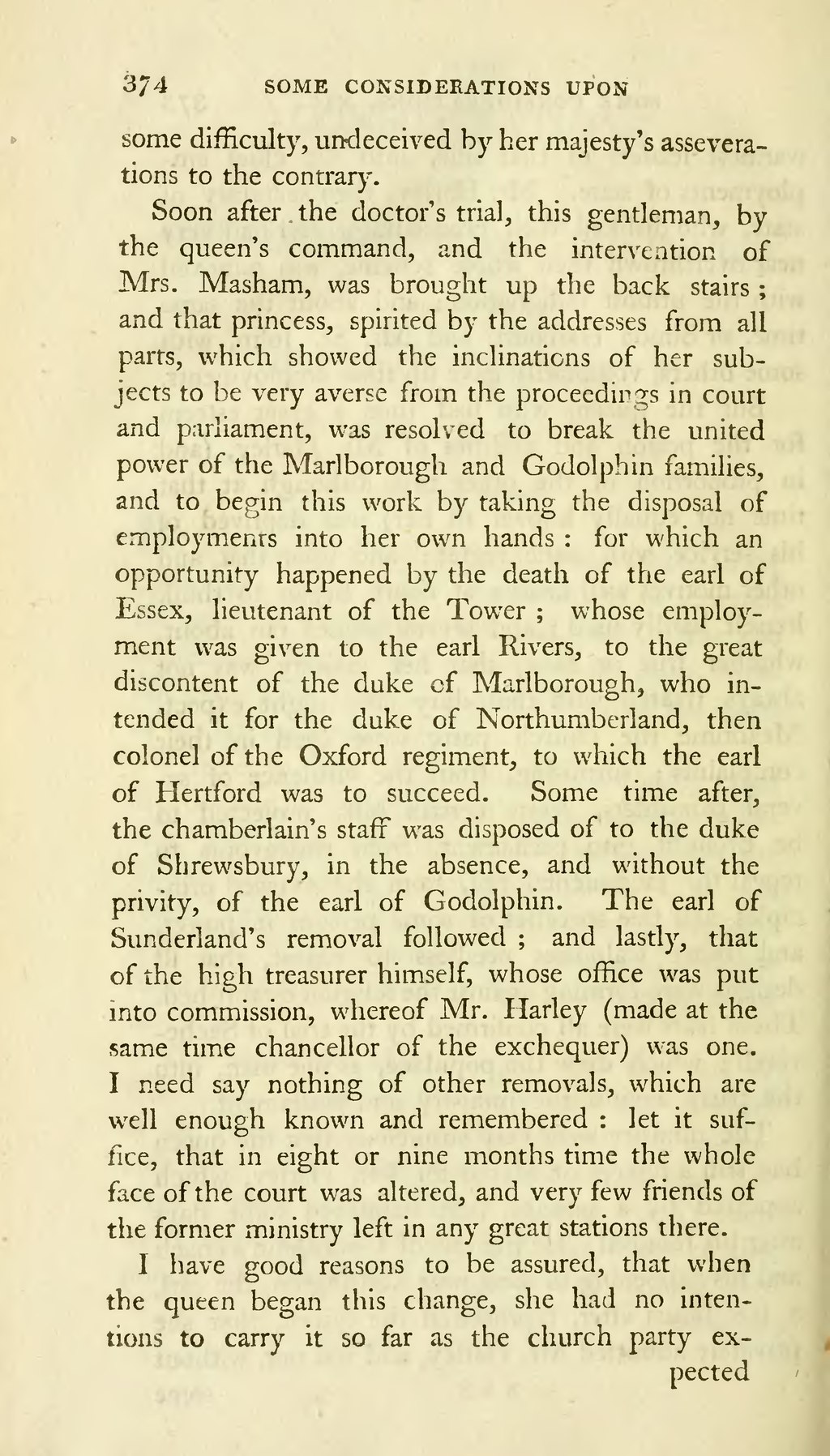some difficulty, undeceived by her majesty's asseverations to the contrary.
Soon after the doctor's trial, this gentleman, by the queen's command, and the intervention of Mrs. Masham, was brought up the back stairs; and that princess, spirited by the addresses from all parts, which showed the inclinations of her subjects to be very averse from the proceedings in court and parliament, was resolved to break the united power of the Marlborough and Godolphin families, and to, begin this work by taking the disposal of employments into her own hands: for which an opportunity happened by the death of the earl of Essex, lieutenant of the Tower; whose employment was given to the earl Rivers, to the great discontent of the duke of Marlborough, who intended it for the duke of Northumberland, then colonel of the Oxford regiment, to which the earl of Hertford was to succeed. Some time after, the chamberlain's staff was disposed of to the duke of Shrewsbury, in the absence, and without the privity, of the earl of Godolphin. The earl of Sunderland's removal followed; and lastly, that of the high treasurer himself, whose office was put into commission, whereof Mr. Harley (made at the same time chancellor of the exchequer) was one. I need say nothing of other removals, which are well enough known and remembered; let it suffice, that in eight or nine months time the whole face of the court was altered, and very few friends of the former ministry left in any great stations there.
I have good reasons to be assured, that when the queen began this change, she had no intentions to carry it so far as the church party ex-
pected
